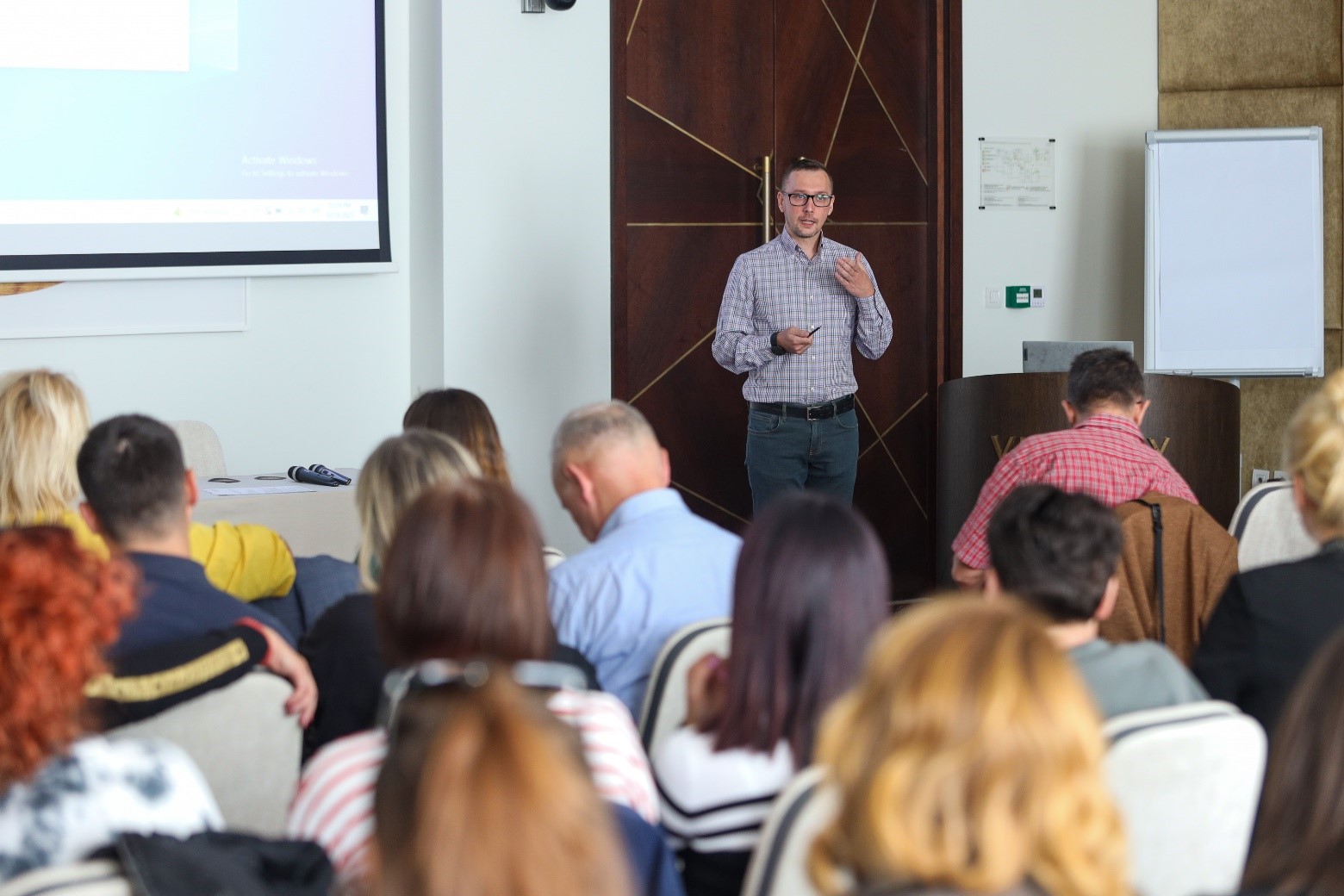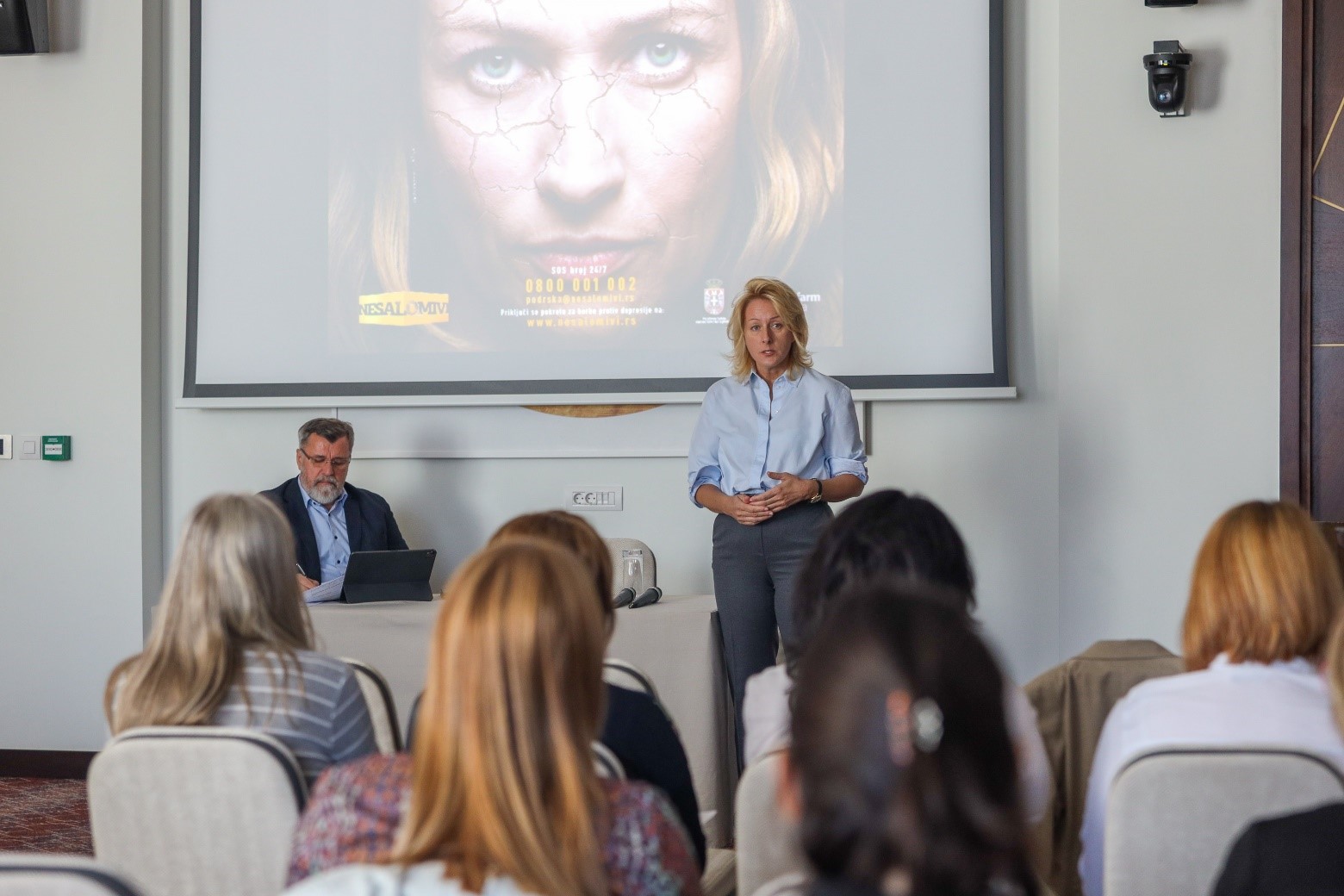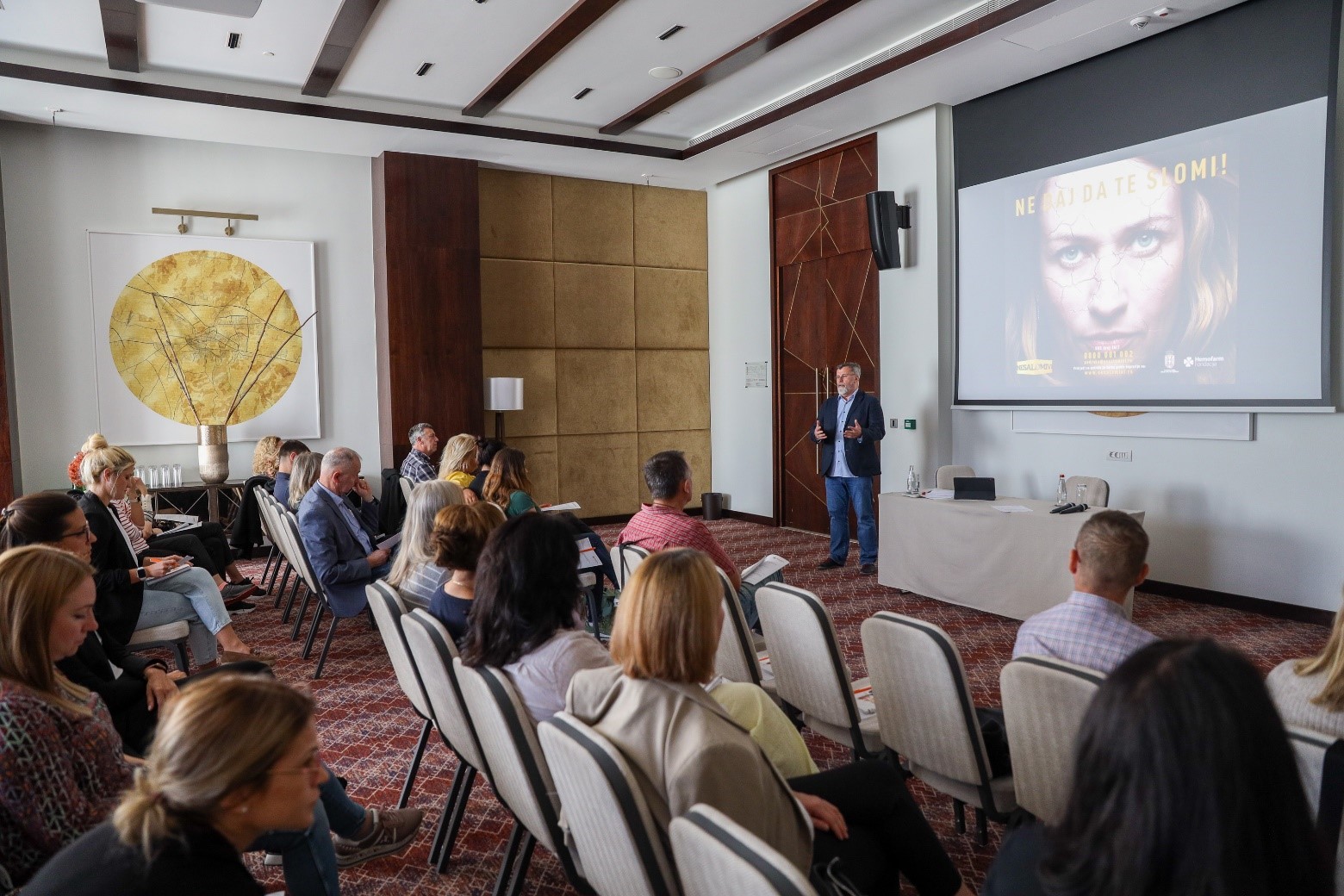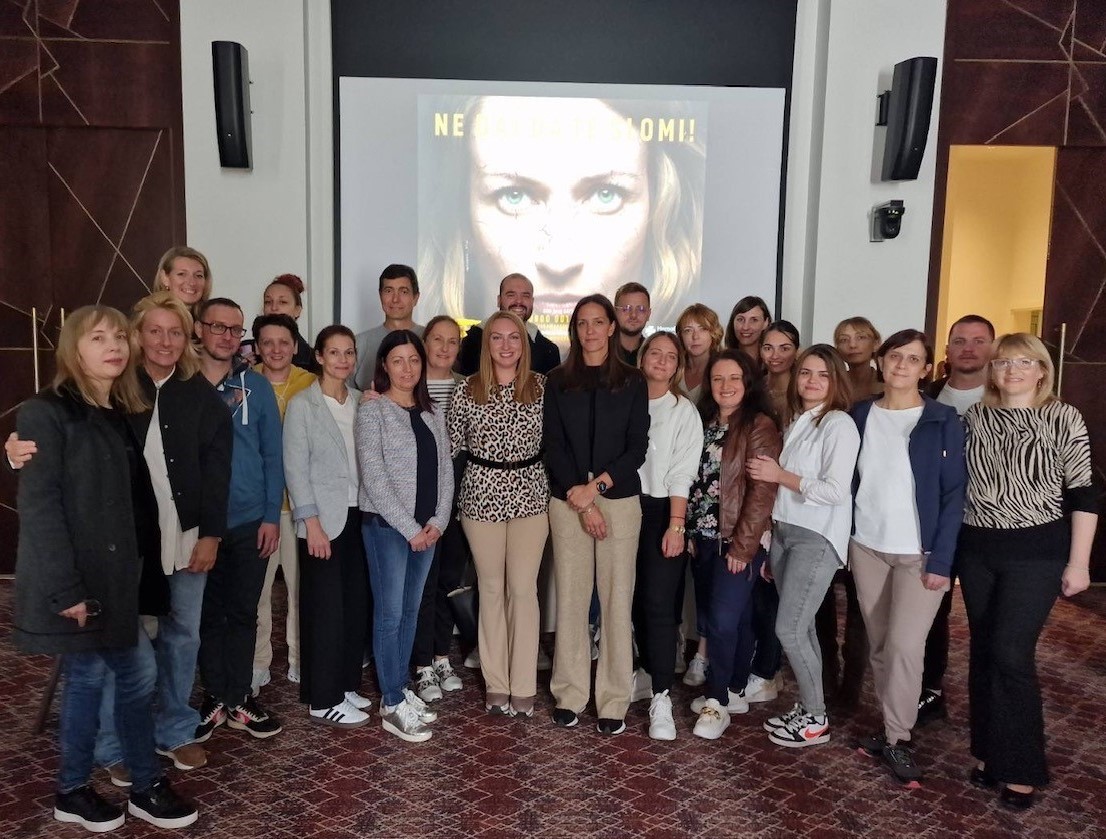Education to improve the work of psychologists and psychiatrists on the Unbreakable SOS line held
The Hemofarm Foundation, in cooperation with the Association of Independent Electronic Media (ANEM) and with the support of the OSCE Office in Serbia, organized at Kopaonik mountain the education of doctors who work on the SOS line within the project Unbreakable for fighting depression and stigma, as well as operators at the Helpline for safety of journalists, with the aim to improve the activities of providing assistance to people struggling with mental disorders.
The meeting was attended by 40 doctors from three special hospitals for psychiatric diseases in Vršac, Kovin and Gornja Toponica, who are a part of the national network for providing free and anonymous 24/7 psycho-social support to citizens via the SOS telephone number 0800/001 002. Likewise, the operators of ANEM’s Helpline 0800/100 115, providing free-of-charge 24/7 assistance to journalists whose safety is at risk, attended educational workshops on techniques and tools used when providing emotional support over the telephone to people in crisis, held by the Center for Emotional Support and Prevention of Suicide ’Srce’ (Heart).

Goran Knežević, Director of Srce Center
Representatives of the Hemofarm Foundation, directors of Special Hospitals, psychologists and journalists, as well as line operators, talked about the cooperation of two important SOS lines and mutual support.
The Foundation director, Suzana Đorđević, thanked the doctors of the three special hospitals for everything they do within the Unbreakable project. Pointing out that psychologists and psychiatrists who work on the SOS line are often the only people to whom people with mental disorders turn, she added that so far more than 17,000 people have received support through this line.

Suzana Đorđević about the results of the Unbreakable campaign and activities of the Foundation for providing psycho-social support to citizens
The President of the Management Board of ANEM, Veran Matić, explained that for the past few years he has also been working as an operator of the Helpline for the safety of journalists, and that by talking with endangered journalists, he understood how much they are in need of health support. With the help of the OSCE, the mental health of journalists was analysed, showing worrying results.

Veran Matić about mental health of journalists
Tamara Džamonja Ignjatović, professor of psychology at the Faculty of Philosophy in Belgrade, presented the results of this analysis via video link, stressing that the important role of journalists in society should be accompanied by greater systemic care for their mental health.
The results of the analysis showed that as many as 70% of the journalists who participated in the research believe that what they report on leaves some psychological consequences, and almost all testify to chronic illnesses, most of which are caused by stress. According to Prof. Džamonja Ignjatovic, a fifth of media workers are diagnosed with post-traumatic syndrome, a third have a higher level of stress, but more than half of journalists did not seek help even though they had difficulties.
The journalists who are the authors of the analysis, Jovana Gligorijević and Branko Čečen, also addressed the attendees, and emphasized that many journalists do not recognize that the stress they are exposed to every day at work is the cause of problems, that the topics that most affect journalistic stress are war reporting, gender-based violence , organized crime and that, worldwide, the only profession deadlier than being a journalist is – woodcutter.
The workshops that followed dealt with topics such as the presentation of the basic intervention tools for providing support over the phone, the specifics of working with people who have experienced loss - complicated grief, mastering techniques to avoid manipulative conversations, the specifics and challenges of working with suicidal patients, and the very important topic of the avoidance of negative effects of working on an SOS line and creating of a support system for the operators of such helplines.
At the end of the workshop, Suzana Đorđević and Veran Matić emphasized that the type of help provided by the doctors gathered around the Unbreakable network will be increasingly needed and that destigmatizing of seeking help from a psychologist or psychiatrist is necessary throughout Serbia.

Group photo with participants from the Special Hospital for Psychiatric Diseases Vršac